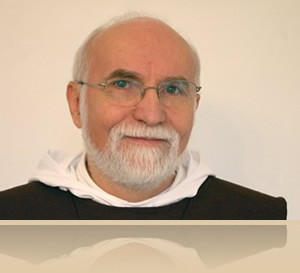New Year’s Resolutions and the Limits of Tools and Techniques
Devra Torres | Dec 30, 2014
We might think that God wanted simply obedience to a set of rules, whereas He really wants people of a particular sort.
C. S. Lewis, Mere Christianity

It's New Year's resolution time. Time to identify that one structural adjustment of habits that will Change Everything. But where to begin?
What needs changing? Not many people are confused about which areas need improvement. These tend to be painfully obvious. The most popular resolutions revolve around achieving control over weight, health, money, relationships, and stuff. Around the bottom of the Top Ten list, you find things like "Help others" and "Live life to the fullest."
How exact should the resolution be? This is fairly obvious, too. Some people—especially the very young—have great faith in sanguine declarations like "I'll get organized!" or "I'll handle money better!" but the illusion that an initial burst of enthusiasm for a vague but fervent wish can be sustained throughout 364 more days is short-lived for most people. On the other hand, you have to be young, or naïve, or both, to place much faith in an overly specific plan like “From now on, I will eat 1865 calories on weekdays and 1870 on Sundays, and I will spend 30 minutes a day in meaningful conversation with my spouse.”

How ambitious should it be? Common sense dicates that we aim somewhere in between “I will lose ten pounds a week by giving up sugar, starch, fats, meat, and salt” and "I will give up parsley and elephant rides” (which my Jewish grandmother always used to say she was going to do for Lent). If you fail to fulfill an overly ambitious resolution, you’re back where you started—except a little worse, a little more dispirited, because now you have one more failure under your belt.
What we need, it seems clear, are tools and techniques: fail-safe methods that will turn these nebulous desires into everyday realities as automatically as possible. We need some method for imposing all that coveted order on our lives.
I’m all for concrete plans of action. It would be ludicrous for someone who tends towards chaos as strongly as I do to badmouth the idea.

But there is a distortion of it that runs rampant in certain circles, like pop psychology and organizational behavior. It’s possible to focus on tools and techniques instead of on “becoming a person of a particular sort” or instead of engaging with another person as a person, not just the focal point of your tools-'n'-techniques prowess.
You can tell when someone is doing this to you: when a salesman uses your name repeatedly because he’s been told that this will create a feeling of trust and intimacy in you. Or when someone bombards you with so many “I messages” (“I feel x when you do y.”) that it’s hard to tell what he’s even saying. Or when, as I’m reading lately in Jacques Philippe’s Time for God,

you begin to see prayer as more of a procedure—a method for yielding a particular result, in the form of holiness or peace of mind—than a relationship with a Person.
So of course there are rules to obey—C. S. Lewis knew that. Of course there are concrete methods, without which the best New Year’s resolutions would remain wisps of wishful thinking, dissipating without a trace by January 2nd. But the rules and regulations, the methods and schedules, the “weird tricks” and “life hacks”--they're all means, not ends.
So happy new year! But remember: "obedience to a set of rules"--whether they're the Ten Commandments or the arbitrary rules you invent for yourself---is secondary to becoming who you are.
